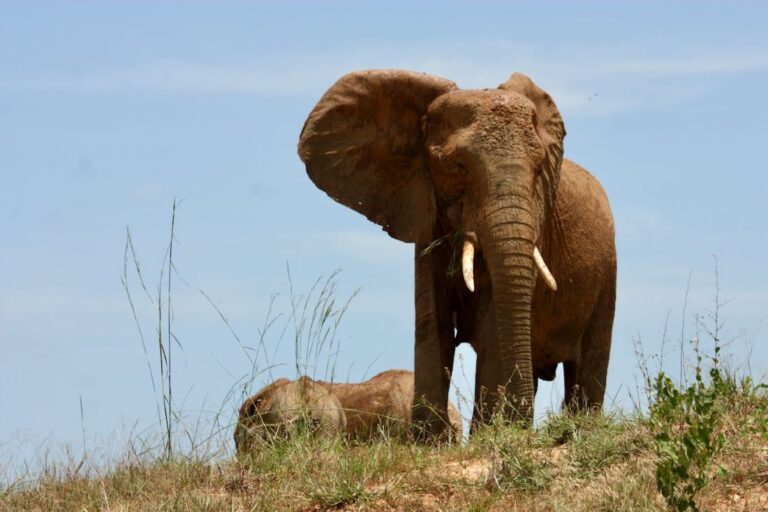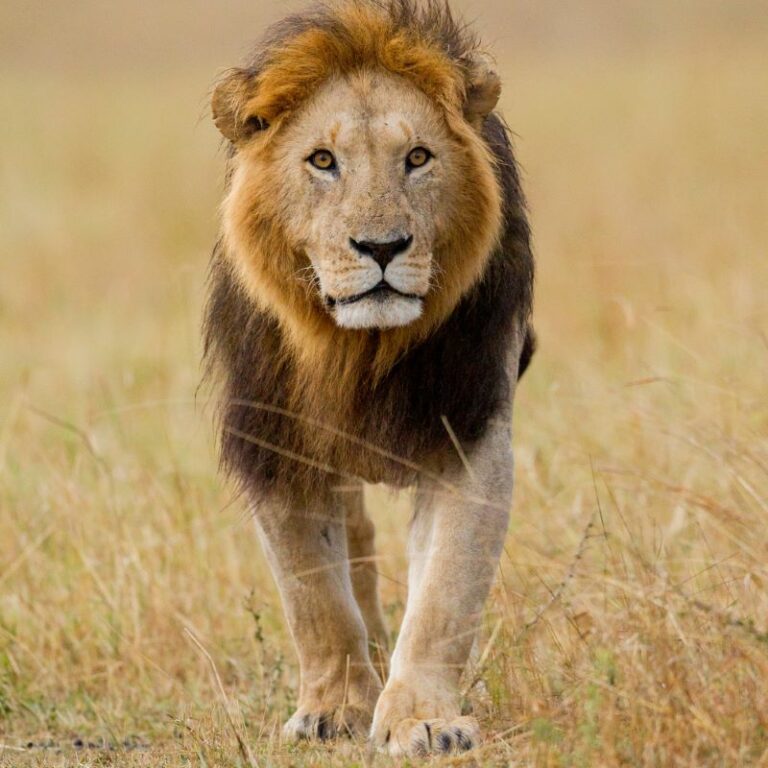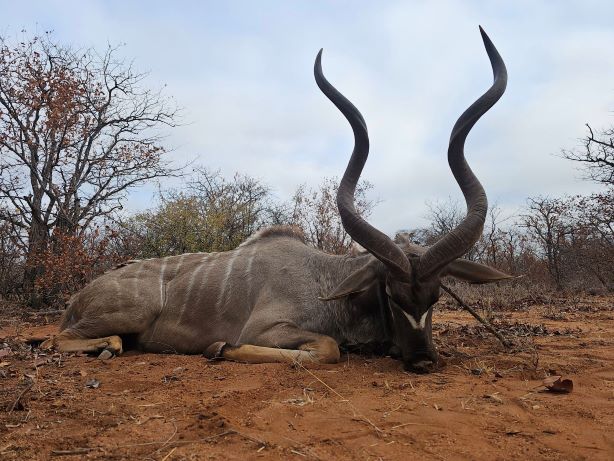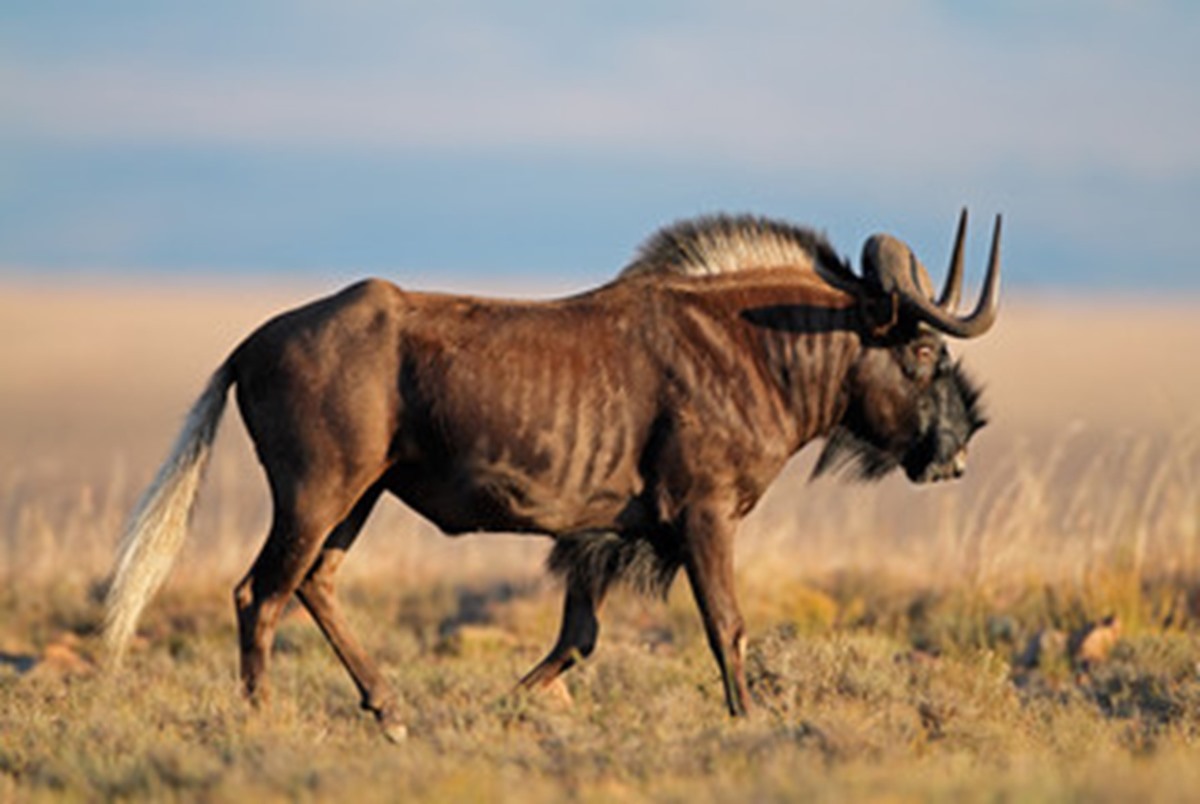When it comes to game hunting safaris in Africa, ethical practices are more important than ever. As conservation efforts grow, so does the need to ensure that every trophy is obtained responsibly and aligns with local and international regulations. This is where DNA tracking is making a significant impact, offering a modern solution to an age-old challenge.
By using DNA technology, we’re able to trace the origins of hunted animals, verifying their legality and sustainability. This not only supports ethical hunting but also helps preserve wildlife populations for future generations. It’s a step forward in balancing tradition with accountability, ensuring that hunting remains a responsible practice.
Game hunting safaris offer a unique chance to explore Africa’s vast wilderness while participating in a centuries-old tradition. But what makes a hunting trip genuinely memorable is its ethical approach, ensuring the sustainability of wildlife and ecosystems. Let’s dive into what makes these adventures extraordinary, how to prepare, and the importance of responsible hunting.
[DYNAMIC-BLOGTABLEOFCONTENT]
Key Takeaways
- DNA Tracking Ensures Trophy Legitimacy: Cutting-edge DNA technology verifies the origins of hunted animals, ensuring compliance with local and international ethical hunting regulations.
- Ethical Hunting Supports Conservation: Targeting overpopulated or non-breeding animals promotes ecological balance while generating revenue for conservation programs and anti-poaching efforts.
- Sustainability Through Responsible Hunting: Ethical practices in Africa focus on preserving wildlife populations, respecting ecosystems, and supporting biodiversity.
- Revenue Benefits Local Communities: Funds from hunting activities contribute directly to local economies, enabling better infrastructure, education, and healthcare while fostering conservation incentives.
- Partnering with Reliable Safari Brokers Matters: Reputable safari brokers ensure compliance with legal frameworks, provide expert guidance, and maximize contributions toward wildlife protection and sustainability.
- Planning and Preparation Enhance Experiences: Researching regulations, choosing the right equipment, and understanding local cultures help ensure an ethical, memorable, and conservation-aligned hunting safari.
Understanding DNA Tracking in Hunting
Game hunting safaris let us experience the African wilderness up close. They provide opportunities to pursue prized species like kudu, impala, and sometimes even lions under regulated and ethical conditions. By working with professional African hunting safari brokers, we also gain access to expert-guided hunts ensuring thrilling yet conservation-conscious experiences.
Unlike generic hunting trips, safaris include more than just the hunt—often combining luxury accommodations, cultural insights, and breathtaking scenery, creating adventures rich in diversity. Plus, wouldn’t it feel incredible knowing your presence is contributing to anti-poaching efforts and wildlife conservation?

Preparing for Your Safari
Research The Right Location
Not all hunting regions are the same. Countries like South Africa and Namibia lead in offering structured and sustainable hunting experiences. For lion hunting in Africa, South Africa has stringent regulations to ensure ethical practices. Understanding legal frameworks in your chosen country ensures compliance with hunting laws and guarantees a legitimate experience.
Partner With Reliable Safari Brokers
Partnering with top-tier outfitters or brokers, like those at “/”, ensures professionalism and safety throughout your journey. They handle permits, logistics, and accommodations while offering expert trackers to lead your adventure. Choosing knowledgeable partners also lets us access deeper conservation efforts aligned with hunting initiatives.
What to Pack?
The essentials for any game hunting safari include appropriate firearms licensed for the region, durable hiking boots, climate-appropriate clothing, personal first aid supplies, and high-quality binoculars. Don’t forget to pack a camera to capture memories, and always check specific country customs regarding firearm regulations before travel.
The Role of Ethical Hunting in Conservation
Ethical hunting ensures species’ survival by targeting older, non-breeding males or those at carrying capacity limits. Revenue generated from hunting trips in Africa is often reinvested back into local communities and conservation programs, supporting wildlife habitats and anti-poaching technology advancements.
Wildlife DNA Forensics & Conservation Genetics
One fascinating element of modern hunting involves DNA tracking. Technologies like the Rhino DNA Index System (RhODIS) allow authorities to track animals’ genetic information to counter the illegal wildlife trade. Integrating such tools into hunting regulations ensures species like rhinos and lions aren’t hunted unlawfully and helps promote long-term sustainability.
Top Tips for First-Time Safaris
- Understand Your Quarry: Study the habits and characteristics of animals you plan to hunt, respect their behavior, and follow ethical guidelines during the hunt.
- Be Patient But Alert: Great hunts often require waiting for the perfect moment. Trust your guide when strategizing.
- Stay Hydrated: Safaris demand physical effort in hot climates. Carry water consistently.
- Respect Wildlife: Ethical hunting doesn’t end at conservation planning; it involves respecting the dignity of each animal’s life during hunts.

The Role of DNA Tracking in Trophy Legitimacy
Game hunting safaris in Africa offer adventure, tradition, and a link to conservation when conducted responsibly. These safaris aren’t just about trophies; they’re about respecting wildlife, supporting local communities, and preserving ecosystems. But how do we ensure this balance? That’s where preparation, partnerships, and ethical practices come into play.
Planning Your Game Hunting Safari
Proper planning enhances the experience and ensures everything aligns with conservation goals.
Choosing the Right Location
South Africa, Tanzania, and Zimbabwe stand out as premier destinations. Each country has specific regulations, diverse landscapes, and species like impala, kudu, or African lions. Research the laws of your chosen country to ensure compliance while preparing for adventures.
Partnering with an African Hunting Safari Broker
Local expertise ensures all arrangements follow legal hunting frameworks. Reliable brokers, like those highlighted on Game Hunting Safaris, connect hunters to licensed operators, manage permits, and arrange accommodations.
Preparing the Essentials
Pack climate-appropriate clothing, first aid kits, field gear, and government-sanctioned equipment. Verify the export requirements for trophies beforehand to avoid complications.
The Role of Ethics in Hunting
Ethical hunting prioritizes sustainability and biodiversity. By targeting overpopulated animal species, we contribute to balancing ecosystems. Ethical hunters focus on conserving wildlife populations without threatening endangered species.
Supporting Conservation Efforts
Revenue from hunting directly aids conservation genetics research, anti-poaching efforts, and local livelihoods. Programs such as the Rhino DNA Index System (RhODIS) combat illegal wildlife trade and safeguard species under threat.
Respecting Wildlife
Responsible hunters go beyond regulations by understanding animal behaviors and habitats. This awareness enhances encounters while ensuring safe, ethical interactions.
Making the Most of Hunting Trips in Africa
Understanding Local Cultures
Immerse yourself in traditions of the communities hosting you. From shared meals to local stories, traditions help connect us to the land and its people.
Embracing Patience
Wildlife encounters require time. Waiting for the right moment enriches experiences and ensures ethical, precise results.
Hydration and Rest
Safaris operate in warm climates. Staying hydrated and well-rested enhances focus and endurance during expeditions.
Game hunting safaris blend adventure with conservation. They’re opportunities to engage responsibly with African wildlife while contributing to its future—something we should all aim for. For more information or to plan your safari, visit Game Hunting Safaris.
Ethical Hunting in Africa: Challenges and Opportunities
Ethical hunting in Africa plays a significant role in wildlife conservation and economic sustainability. However, it faces various challenges that need addressing to ensure its legitimacy and benefits for future generations.
Conservation Efforts and Sustainable Practices
Conservation relies heavily on sustainable hunting practices. By targeting overpopulated or non-endangered species, ethical hunting supports ecological balance. Revenue generated from hunting trips in Africa often funds anti-poaching technology, conservation genetics research, and habitat restoration efforts. For instance, tools like the Rhino DNA Index System (RhODIS) aid in tracking and protecting endangered species like rhinos from illegal trade.
We see growing integration of DNA tracking in wildlife conservation in Africa. DNA verification helps confirm the origins of hunted animals, ensuring legal compliance and ethical sourcing. Programs utilizing Wildlife DNA forensics not only reinforce ethical standards but also strengthen local efforts against poaching and biodiversity loss. South Africa, a key destination for game hunting safaris, has been at the forefront of these initiatives, balancing tourism with conservation goals.
Addressing Concerns Around Trophy Hunting
Trophy hunting often draws criticism due to ethical and conservation concerns. While lion hunting in Africa and other high-profile activities sometimes face scrutiny, they can contribute to community-led conservation if regulated properly. Opponents highlight risks like overharvesting or exploitation of rare species, whereas proponents argue it generates vital funds for preserving wildlife habitats and reducing illegal wildlife trade.
African Hunting Safari Brokers play a critical role in mitigating these issues. Reliable brokers help hunters comply with local regulations and focus on ethical practices. For example, partnerships with local communities ensure that hunting revenues directly support education, healthcare, and conservation programs. Transparency, combined with modern technologies like DNA tracking, strengthens trust and reduces irresponsible hunting practices, offering a path for ethical hunting to coexist with wildlife protection.
Game hunting safaris offer a unique opportunity to engage directly with Africa’s stunning landscapes and diverse wildlife. However, hunting ethically in Africa isn’t just about the adventure; it’s a purposeful effort to support conservation and local communities. With modern tools like DNA tracking, we can ensure that wildlife populations remain protected and trophy legitimacy is upheld. Interested in planning a responsible hunting trip? Let’s dive into all the essential details.

Benefits of DNA Tracking for Wildlife Conservation
Conservation Through Revenue
Ethical hunting, especially in destinations like South Africa, channels money directly into conservation projects. Revenue from hunting trips is often allocated toward anti-poaching programs, habitat restoration, and conservation biology research. For instance, the funds help maintain biodiversity by managing wildlife populations and protecting endangered species like rhinos and elephants.
Supporting Local Communities
Hunting trips in Africa significantly contribute to local economies. Communities benefit from hunting permits, job creation, and the infrastructure developed around tourism, including healthcare and educational programs. Responsible game hunters play a key role in uplifting livelihoods and incentivizing conservation by partnering with trusted African hunting safari brokers.
Ensuring Species Management
Ethical hunting does more than just control animal populations; it helps target specific overpopulated or non-threatened species to avoid ecosystem imbalance. For example, controlled lion hunting in Africa can stabilize predator-prey dynamics while bringing financial benefits to conservation.
Using DNA Tracking in Ethical Hunting
Why DNA Tracking Matters
DNA tracking in wildlife conservation across Africa offers groundbreaking solutions. It allows us to verify the origins of hunted animals and ensure that all trophies adhere to legal and ethical guidelines. Tools like the Rhino DNA Index System (RhODIS) help identify individual animals, making it easier to trace poached wildlife and prosecute illegal hunters. Such measures bridge the gap between hunting traditions and responsible practice.
How Does It Work?
With Wildlife DNA forensics, genetic samples from hair, blood, or tissue are collected after a hunt. These are cross-checked against global databases, including RhODIS, to confirm species identity, origins, and even lineage. By validating the trophy’s legality, hunters can confidently claim their contribution to sustainable wildlife management.
Planning Your Hunting Safari
Choosing the Right Destination
Popular game hunting safari destinations include South Africa, Tanzania, and Zimbabwe. South Africa is renowned for its wide range of species and well-regulated hunting systems. Tanzania provides a mix of breathtaking landscapes and traditional hunting experiences, while Zimbabwe offers opportunities for big game hunting intertwined with conservation-led initiatives.
Researching Safari Brokers
Partnering with reputable African hunting safari brokers ensures compliance with regulations and supports ethical practices. Look for brokers with a track record of supporting conservation programs and maintaining transparent operations.
Preparing for the Safari
Packing depends on the terrain and personal needs, but essentials include weather-appropriate gear, hunting equipment, and documentation like licenses. Before leaving, verify export requirements for trophies and make sure they align with local and international laws.
Combating Illegal Wildlife Trade
DNA tracking doesn’t just ensure hunting transparency—it also tackles illegal wildlife trade by providing evidence to convict poachers. RhODIS and other systems work with anti-poaching technology to undermine poaching networks, protecting vulnerable species and enhancing conservation genetics research.
For more insights and tools to plan your safari, visit Game Hunting Safaris.
Hunting in Africa offers a unique, thrilling experience while contributing to wildlife conservation and community development. Game hunting safaris allow us to explore vast wildernesses, respect traditional hunting practices, and embrace responsible approaches that ensure sustainability for future generations. From the majestic lions to iconic rhinos, Africa’s wildlife diversity demands ethical and regulated hunting practices to balance preservation and participation.
In this article, we’ll dive into practical steps for planning your hunting trip, insights into ethical practices, and the role of cutting-edge technology in hunting responsibly.
Future of DNA Tracking in Hunting Regulations
Africa is home to many premier hunting grounds. South Africa, Tanzania, and Zimbabwe are some of the top destinations, each offering abundant opportunities and unique landscapes.
Why Hunting in South Africa Stands Out
South Africa leads in ethical hunting efforts, integrating modern technologies like DNA tracking in wildlife conservation. Its well-established private reserves allow regulated hunting practices while contributing millions of dollars annually to anti-poaching programs. The country is notable for initiatives like the Rhino DNA Index System (RhODIS) that combats poaching and illegal wildlife trade.
Working with an African Hunting Safari Broker
Partnering with experienced brokers ensures compliance with local laws and smooth planning. They provide invaluable guidance on obtaining permits, understanding export requirements for trophies, and accessing ethical outfitters. Reputable brokers also help maximize community impact, making sure your hunting revenues contribute to conservation and development.
Visit Game Hunting Safaris for assistance in selecting the right broker.
Preparing for Your Hunting Trip
It’s essential to plan every detail before embarking on your hunting adventure.
Researching Local Regulations
Permit acquisition and knowledge of local hunting laws are critical. Countries like South Africa require hunters to submit records verifying that the animal was part of sustainable population management. Regulations help ensure legal trophy acquisition without harming conservation efforts.
Packing Essentials
From clothing suitable for diverse climates to GPS and cameras for tracking, pack strategically. Avoid overpacking, but ensure that you’ve got essentials: sturdy boots, protective eyewear, and rapid rehydration salts. Preparation enhances your hunting experience and ensures safety in remote locales.
Scheduling Hunting Trips in Africa
Timing influences the availability of select species and weather conditions. For instance, hunts for species like kudu or eland are best between April and September, during Africa’s cooler months. Research preferred seasons for your target species to make the most of your trip.
Ethical Practices in Trophy Hunting
Balancing Hunting and Conservation
Ethical hunting means targeting specified species based on population studies. This practice ensures fragile ecosystems remain balanced. For example, hunting older animals, whose genetic contribution is no longer critical, helps conserve species like antelopes or lions.
At its core, ethical hunting reinvests revenue into conservation genetics and anti-poaching technology. Revenue supports initiatives designed to protect wildlife habitats and address threats like illegal wildlife trade.
DNA Tracking in Wildlife Conservation Africa
Technologies like wildlife DNA forensics verify the origins and legality of hunted animals. Systems like RhODIS help law enforcement and safari organizers combat poaching by tracking rhino DNA. These innovations not only ensure compliance with ethical standards but also strengthen wildlife preservation efforts.
Testimonials and Memorable Experiences
Hunters often describe their trips as life-changing. From close encounters with Africa’s ‘Big Five’ to contributing to local communities, game hunting safaris go beyond recreation. They offer a glimpse into conservation from the field’s frontlines.
Curious about planning your next adventure? Connect with specialists at Game Hunting Safaris to start your ethical hunting journey.

Conclusion
Ethical hunting, supported by innovative tools like DNA tracking, offers a path to conserve Africa’s wildlife while respecting its natural heritage. By prioritizing sustainability and accountability, we can ensure that game hunting safaris remain a positive force for biodiversity and local communities.
As stewards of this shared responsibility, it’s up to us to embrace practices that protect future generations of wildlife. With careful planning, adherence to regulations, and the use of modern technologies, we can transform hunting into a meaningful contribution to conservation and ecological balance.
Frequently Asked Questions
What are ethical practices in game hunting safaris?
Ethical practices in game hunting safaris ensure that hunting is conducted responsibly, targeting specific populations to maintain ecological balance. It involves adhering to regulations, using sustainable methods, and reinvesting revenues into wildlife conservation and local community support programs.
How does DNA tracking support ethical hunting?
DNA tracking helps verify the origins of hunted animals, ensuring they are legally sourced. This technology combats illegal wildlife trade, promotes conservation efforts, and fosters accountability in ethical hunting practices.
Why is ethical hunting important for wildlife conservation?
Ethical hunting supports conservation by targeting overpopulated or non-endangered species. It generates revenue for anti-poaching programs, habitat restoration, and biodiversity management while aiding local communities.
How do hunting revenues benefit local communities?
Revenue from ethical hunting funds education, healthcare, and conservation initiatives. It also provides employment opportunities for locals, contributing to economic growth and sustainable development in safari regions.
What essential steps should I take before planning a hunting safari?
Research local regulations, partner with experienced safari brokers, and pack appropriate gear. Verify trophy export requirements and ensure the trip aligns with ethical and legal hunting standards.
Which African countries are ideal for ethical hunting safaris?
Top destinations include South Africa, Tanzania, and Zimbabwe, known for their rich biodiversity, ethical hunting practices, and use of advanced technologies like DNA tracking for conservation.
How does ethical hunting address ecological balance?
Ethical hunting maintains ecological balance by focusing on overpopulated or non-endangered species. This approach prevents habitat degradation and supports healthy wildlife populations.
What role do safari brokers play in ethical hunting?
Safari brokers ensure compliance with local regulations, coordinate hunting trips responsibly, and promote ethical practices. They help hunters navigate legal frameworks and contribute to wildlife conservation.
How does ethical hunting combat poaching?
Ethical hunting funds anti-poaching efforts, including the use of advanced technologies like DNA tracking. It provides resources for monitoring wildlife and preventing illegal hunting activities.
Why is South Africa a leader in ethical hunting practices?
South Africa adopts advanced technologies like DNA tracking to regulate hunting, combat poaching, and support conservation initiatives. The country’s strict legal frameworks promote sustainable hunting practices.
Is trophy hunting harmful to wildlife populations?
When properly regulated, trophy hunting can benefit wildlife populations by managing overpopulated species and generating conservation funding. Strict guidelines ensure it doesn’t harm endangered species.
How does ethical hunting enhance biodiversity?
Ethical hunting supports biodiversity by targeting specific species to prevent overpopulation. It helps maintain ecological balance and funds programs for habitat restoration and species management.
